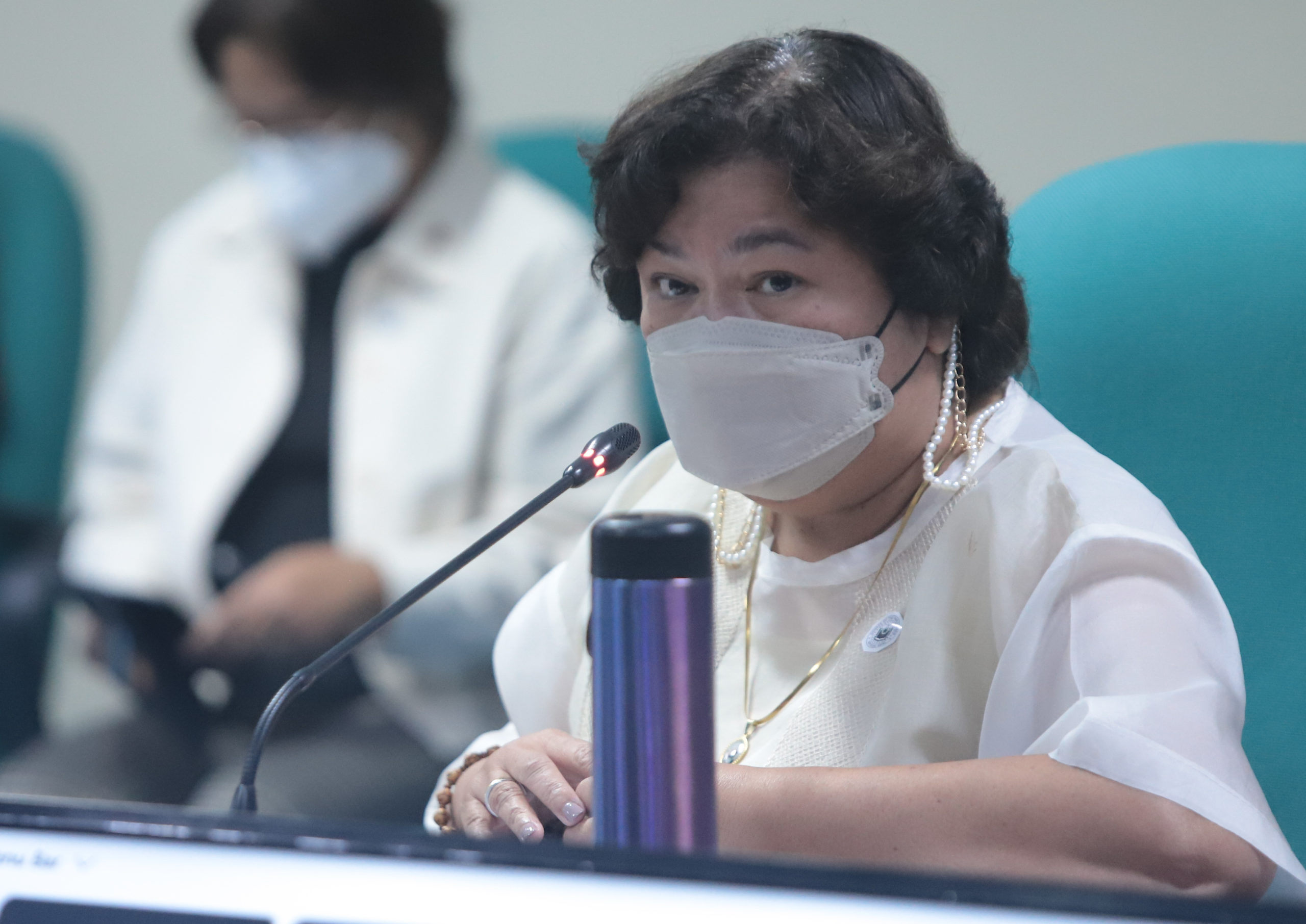
Department of Migrant Workers Secretary Susan Ople. Senate PRIB
Filipino and Chinese officials are holding exploratory talks on possible jobs for thousands of Filipino caregivers and assisted care workers in an effort to address the needs of Hong Kong’s elderly population.
Migrant Workers Secretary Susan Ople took up the matter during a bilateral meeting with Hong Kong Secretary for Labour and Welfare Chris Sun on Jan. 10.
Sun said that his government was willing to “fast-track” the hiring of as many as 7,000 Filipino workers to alleviate the special administrative region’s acute manpower shortage in the caregiver and assisted care workers sector. According to him, Hong Kong’s aging population has created a growing need for workers in private and government-funded assisted care facilities. Ople welcomed the proposal, saying this could provide more jobs for Filipinos “under conditions that value their skills and are cognizant of their rights and welfare.”
But at the same time, she also sought to address possible issues that may arise such as the language barrier since the majority of Hong Kong’s senior citizens could only speak Cantonese.
According to the Hong Kong Immigration Authority, there are 211,514 Filipinos living in the city, most of them employed as domestic workers.
Shorter application period
In December last year, the Hong Kong executive council passed a resolution approving the direct hiring of foreign caregivers and shortening their application processing period from the usual three to four months to just two months.
Ople emphasized that the talks were still at the “exploratory level.” The proposed salary range for caregivers and assisted care workers range from HKD12,000 to HKD20,000 or from P85,000 to P140,000.
Ople told Sun of the government’s appreciation for Hong Kong’s initiatives to protect the rights and welfare of overseas Filipino workers and proposed the adoption of collaborative campaigns to educate them on their rights and access to authority assistance when distressed. Sun, on the other hand, underscored the importance of protecting foreign domestic workers.